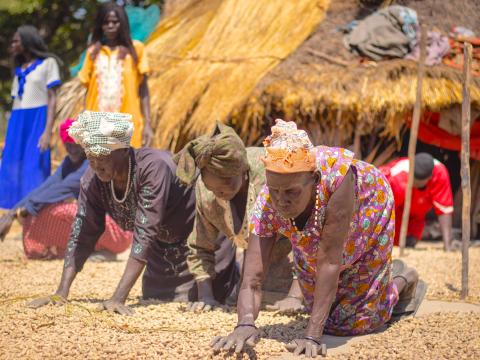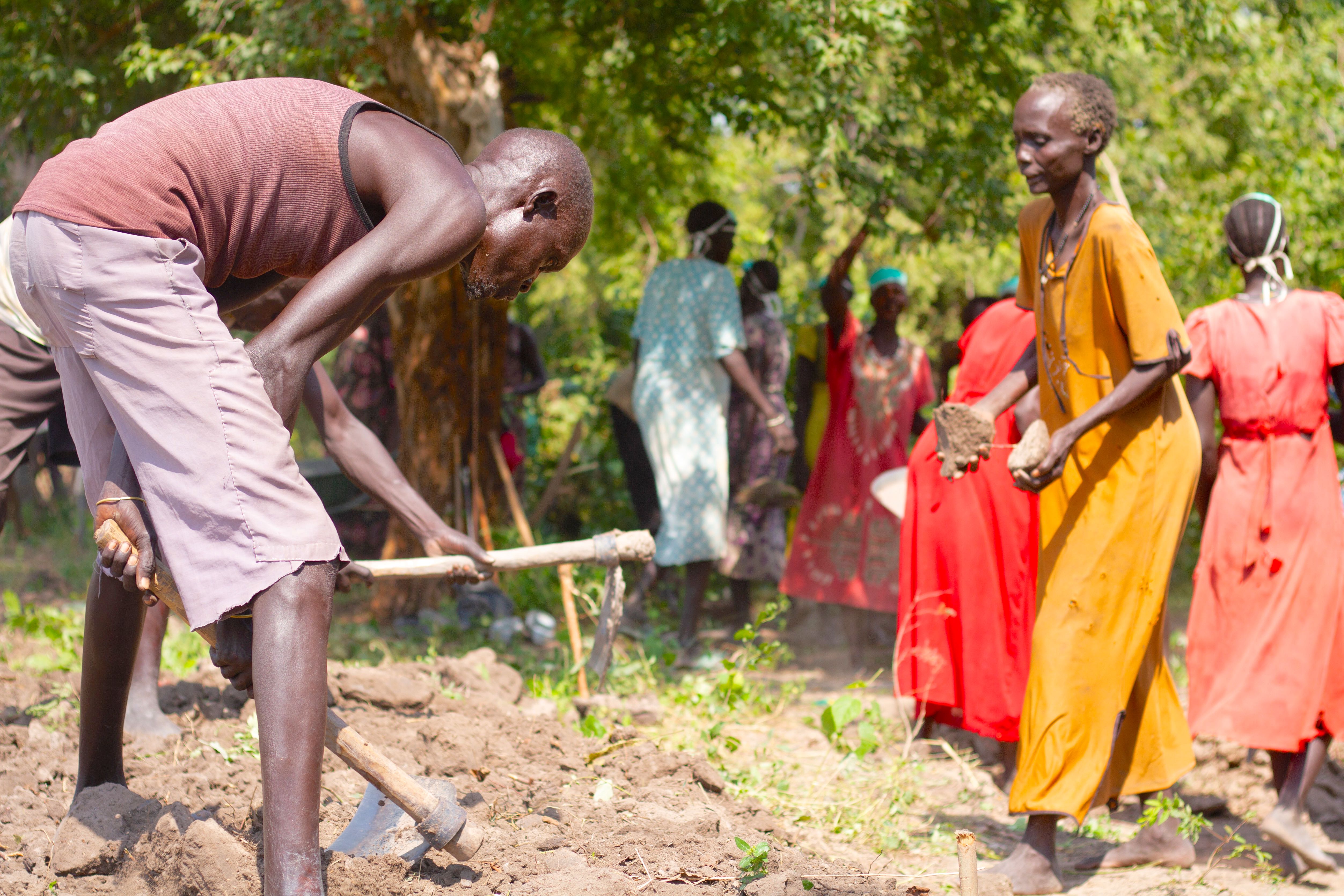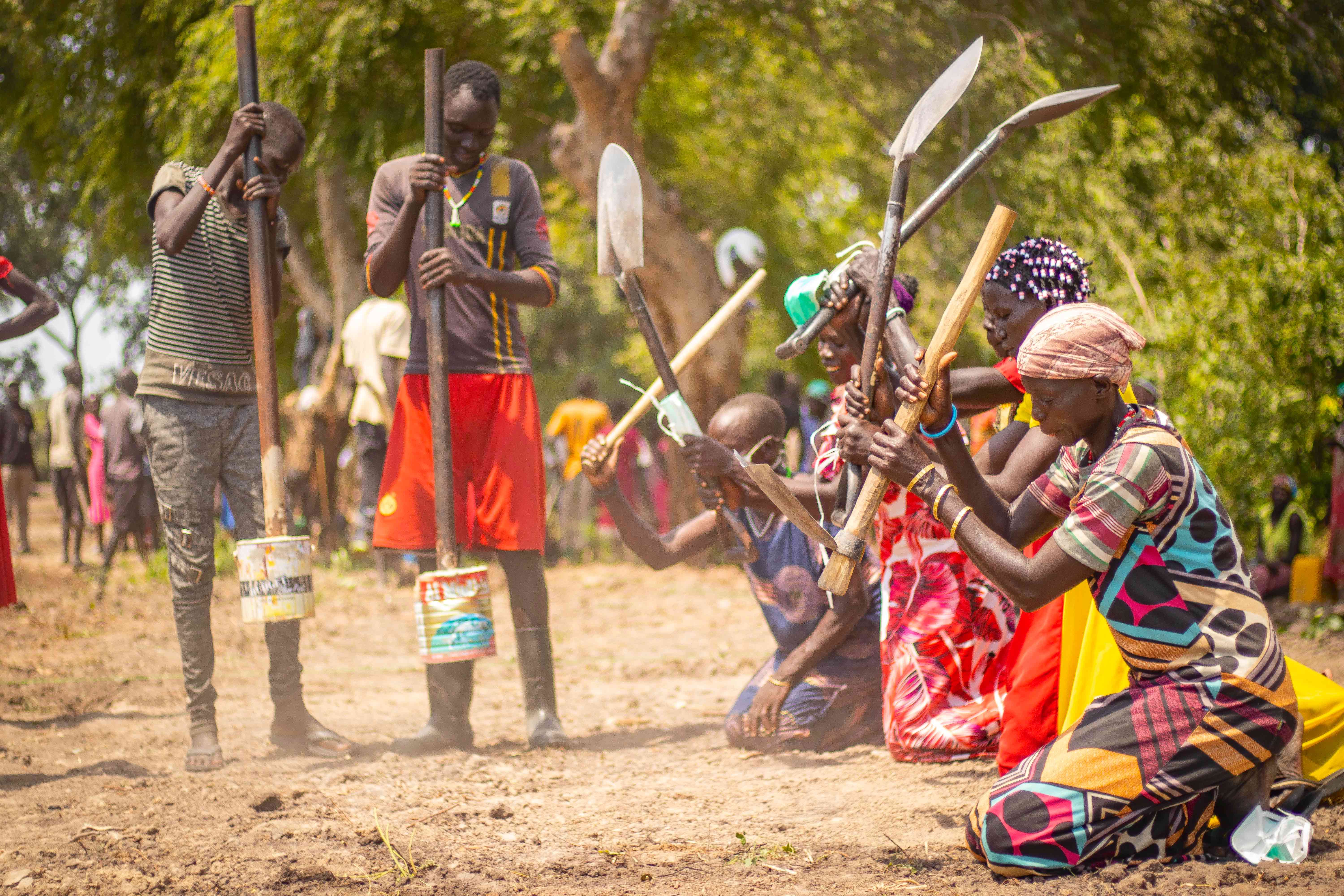South Sudan Humanitarian Response Plan 2022 raises alarming hunger issues that call for stronger concerted efforts

The South Sudan Integrated Food Security Phase Classification (IPC) and Humanitarian Response Plan for 2022. It is not something we can brush aside as another warning.
The report comes amid concerns that the country is facing one of its worst levels of food insecurity. Recurring floods, post conflict displacement, and the global economic crisis resulted in a staggering 7. 7 million people facing acute food insecurity.

To bring a meaningful change and create a dent in the vicious cycle of vulnerability, now more than ever, humanitarian actors and partners should commit to do the following:
- Join hands, heads, and hearts for mobilizing the necessary resources for the humanitarian response plan.
- Intensify efforts to put South Sudan on the agenda in global capitals for continued support to avert a crisis.
- Humanitarian and other partners in South Sudan should device and embark on newer ways of working.
In the face of declining humanitarian funding for protracted post conflict situation like South Sudan, and competing global priorities, programs must prioritize, first and foremost, on saving lives of vulnerable populations.
Concerted efforts are needed to reduce the number of people, currently estimated at 2.37 million facing dire emergency conditions (IPC Phase 4) from further deterioration.
Critical lifesaving interventions are urgently needed for the estimated 55,000 people classified as being under Catastrophic (IPC Phase 5) conditions.
Now more than ever, South Sudan needs to work towards completely safe and unimpeded humanitarian access. It must ensure unconditional facilitation of humanitarian operations, safety and security of humanitarian workers and assets.
Humanitarian response measures should also be built with interventions that contribute to resilience of vulnerable households and communities.
The emergency alert has been rung, several times in fact, with this last as the hardest. Increased collaboration, and complementarity must commence at this point in time.
Area-based approaches that bring all humanitarian and other partners to work together on jointly agreed priorities, elimination of duplication and wastage of resources through improved coordination.

The coordination efforts must be strengthened at county, state, and national levels. We are stronger in our response when we take steps and share resources together.
Now more than ever, South Sudan needs to work towards completely safe and unimpeded humanitarian access. It must ensure unconditional facilitation of humanitarian operations, safety and security of humanitarian workers and assets.
Let us raise hope, that even in the middle of a deteriorating situation such as this, there will be a short pause to take stock and reset the approach to humanitarian response in South Sudan.
The odds are high, but together and in unity, we can remind each other that #ittakesanation to protect the future generation.
By Dr. Mesfin Loha, Country Director